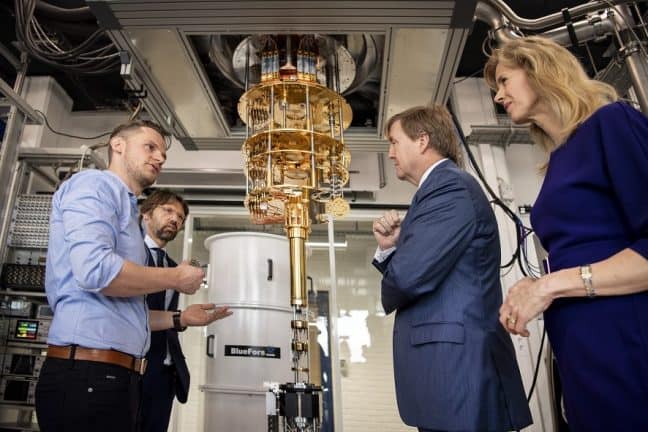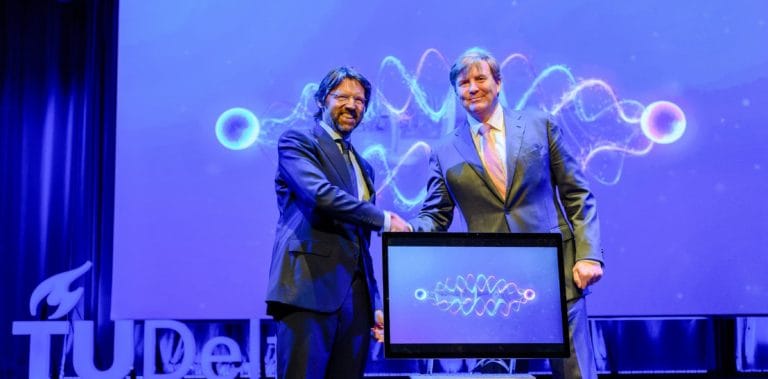Today King Willem-Alexander officially opened the Microsoft Quatum Lab on the TU Delft site. Within this high-quality laboratory, the technology giant and the Dutch technical university will work together on quantum technology to create special quantum bits (qubits), the building blocks for quantum computing, in order to build a scalable quantum computer in the long term.
The opening of the lab is part of an existing public-private partnership between Microsoft, TU Delft, Delft quantum technology company QuTech and TNO. The aim of this collaboration, led by Professor Leo Kouwenhoven of Microsoft, is to achieve topological qubits. These qubits are developed using a revolutionary technology that uses so-called majorana particles.
Lego cubes’ as building blocks
The topological qubits are actually a kind of Lego stones that can be used to build chips. At a later stage, these highly specialised chips can be used to carry out processes within a computer environment, the quantum computer, with extremely high speeds and computing power. Think not only of specialist calculations for medical, chemical or industrial purposes, but also for climate issues.
In the new Microsoft Quantum Lab, the main task is to create the necessary hardware. But, as QuTech Scientific Director Ronald Hanson said in a keynote, at the same time the software will have to be worked on in order to make all the desired applications for the technology possible.

Quantum computing is national project
The public-private nature of this new high-tech laboratory has prompted State Secretary Mona Keijzer of Economic Affairs and Climate to call on all relevant parties in science, government and industry to join in with quantum research and to join forces. The Netherlands has an exceptional, leading position in quantum technology, which is recognised worldwide. A better public-private partnership should confirm and strengthen this position, according to the State Secretary. In addition, this could be of great benefit to the national economy and society in our country.
In addition to Delft University of Technology, the other universities of technology, Eindhoven (materials) and Twente, are now also involved in the quantum computing process. The University of Amsterdam (software and the Dutch classic supercomputer present at this university) and Leiden University will also participate.
Techzine was present at the opening today. We spoke with National Technology Officer (NTO) Hans Bos of Microsoft about the need to carry out quantum research on a national level, a possible link between quantum computing and Azure and which activities the tech giant already makes available. More about this later on Techzine.
This news article was automatically translated from Dutch to give Techzine.eu a head start. All news articles after September 1, 2019 are written in native English and NOT translated. All our background stories are written in native English as well. For more information read our launch article.